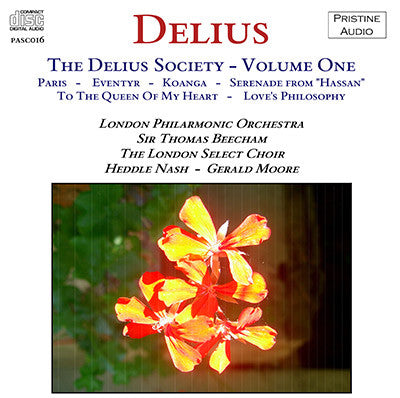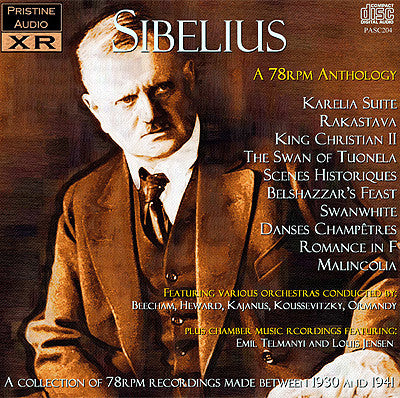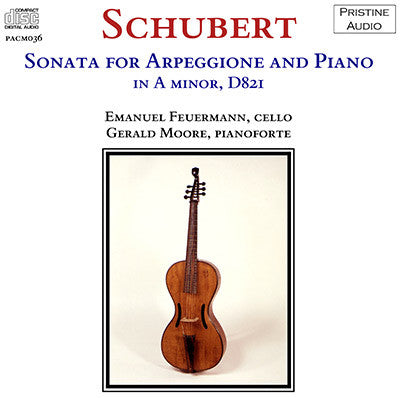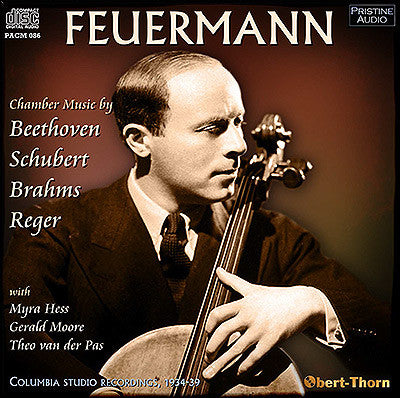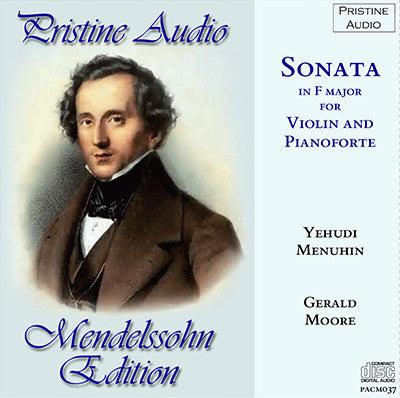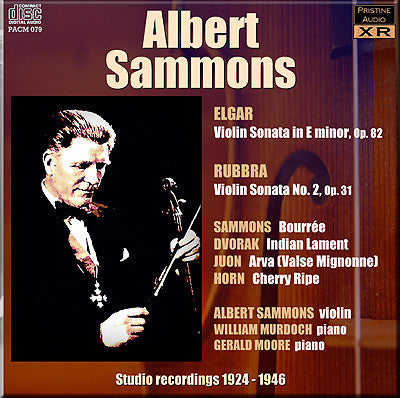Gerald Moore
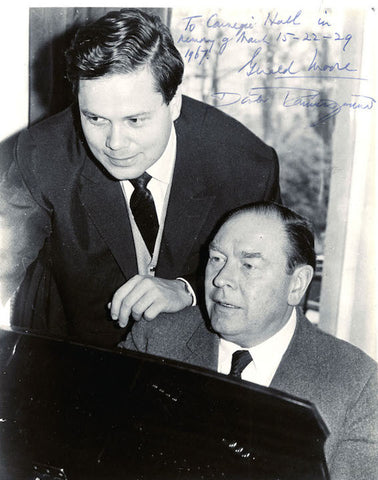
Gerald Moore CBE (30 July 1899 – 13 March 1987) was an English classical pianist best known for his career as an accompanist for many famous musicians. Among those with whom he was closely associated were Dietrich Fischer-Dieskau, Elisabeth Schumann, Hans Hotter, Elisabeth Schwarzkopf, Victoria de los Ángeles and Pablo Casals.
Moore gave lectures on stage, radio and television about musical topics. He also wrote about music, publishing volumes of memoirs and practical guides to interpretation of lieder.
While studying with Mark Hambourg, Moore earned money as an accompanist. The director of the Guildhall School of Music, Landon Ronald, heard him play at a recital and advised him to pursue a career as an accompanist.
In 1921 Moore made his first gramophone recording, accompanying the violinist Renée Chemet for His Master's Voice (HMV). They made several more recordings together, but Moore's preference was for accompanying singers rather than instrumentalists. He recorded frequently with Peter Dawson in the early 1920s, and went on a recital tour of Britain with him; it was Dawson who recommended him to the tenor John Coates, who became an important influence on Moore's career.
Moore credited much of his early success to his five-year partnership with Coates, whom Moore credits with turning him from an indifferent accompanist into one who was sensitive to the music and the soloist, and an equal partner in performance. Another influence, figuring prominently in Moore's memoirs, was the pianist Solomon, whose technique Moore admired and studied.
By the end of the 1930s Moore was so well known as an accompanist that Myra Hess invited him to give a talk about his profession at one of her of lunchtime concerts at the National Gallery. The pianist Joseph Cooper wrote of this, and later similar talks, "He revealed a sense of verbal timing of which any professional comic would be proud. His unique blend of wit and wisdom not only pleased the cognoscenti but also won over ordinary people who had no idea that classical music could be fun." Moore's first book, The Unashamed Accompanist (1943) had its origins in these talks.
Moore is credited with doing much to raise the status of accompanist from a subservient role to that of an equal artistic partner. It is debatable whether he succeeded in convincing the British Establishment of his time, of the uplifted status of his art. Whereas prominent conductors and singers for example, in the British musical theatre were awarded knighthoods, he received a CBE, a lower ranked award. Dietrich Fischer-Dieskau wrote in his introduction to the German edition of The Unashamed Accompanist, "there is no more of that pale shadow at the keyboard, he is always an equal with his partner". Moore jealously protected this status of his art, complaining when accompanists he admired were not given billing in concert. He quoted with disapproval the remark made by a singer to Coenraad V Bos, an accompanist of an earlier generation, "You must have played well today, for I did not notice you."
Moore retired from public performances in 1967, with a farewell concert in which he accompanied three of the singers with whom he was long associated: Dietrich Fischer-Dieskau, Victoria de los Ángeles and Elisabeth Schwarzkopf. This famed concert at London's Royal Festival Hall - recorded by EMI and reissued in 1987 as CDC 749238 - concluded with Moore playing alone—an arrangement for solo piano of Schubert's An die Musik . He made his last studio recording in 1975.

Gerald Moore
Gerald Moore CBE (30 July 1899 – 13 March 1987) was an English classical pianist best known for his career as an accompanist for many famous musicians. Among those with whom he was closely associated were Dietrich Fischer-Dieskau, Elisabeth Schumann, Hans Hotter, Elisabeth Schwarzkopf, Victoria de los Ángeles and Pablo Casals.
Moore gave lectures on stage, radio and television about musical topics. He also wrote about music, publishi...
DELIUS Paris
DELIUS Eventyr
DELIUS Koanga
DELIUS Hassan - serenade
DELIUS To the Queen of my Heart
DELIUS Love's Philosophy
Recorded in 1934
Total duration: 53:51
London Philharmonic Orchestra,
Conductor: Sir Thomas Beecham
London Select Choir
Heddle Nash, tenor
Gerald Moore, piano
SIBELIUS A Collection of Shorter Works
Recorded 1930-41
Total duration: 73:44
Featuring various orchestras conducted by:
Beecham, Heward, Kajanus, Koussevitzky, Ormandy
plus chamber music recordings featuring:
Emil Telmanyi and Louis Jensen
SCHUBERT Arpeggione Sonata in A minor, D.821
Recorded 29 & 30 June, 1937, Abbey Road Studio 3, London
Duration 19:55
Emanuel Feuermann, cello
Theo van der Pas, piano
SCHUBERT Arpeggione Sonata in A minor, D.821
BRAHMS Cello Sonata No. 1 in E minor, Op. 38
REGER Suite for Unaccompanied Cello in G Major, Op. 131c, No. 1
Recorded 1934-39
Total duration: 72:59
Emanuel Feuermann, cello
Myra Hess, piano
Gerald Moore, piano
Theo van der Pas, piano
MENDELSSOHN Violin Sonata in F major (1820)
Recorded 8 October 1952, Abbey Road Studio 3, London
Duration 19:44
Yehudi Menuhin, violin
Gerald Moore, piano
RUBBRA Violin Sonata No. 2 in A major, Op. 100
Short works by Sammons, Dvorák, Juon, Horn
Total duration: 55:38
William Murdoch, piano
Gerald Moore, piano

